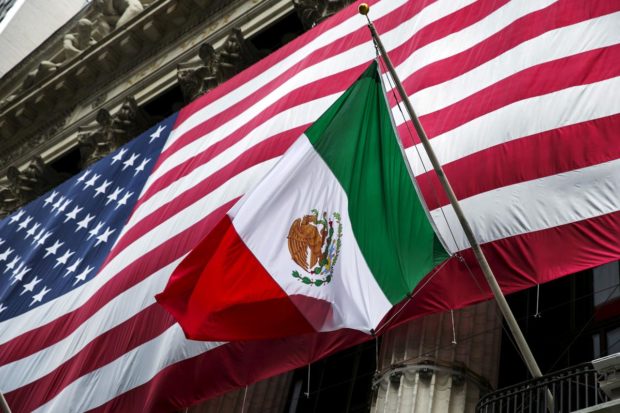How Mexico’s Recession Will Affect the US
The Mexican economy, Latin America’s second-largest after Brazil’s, tumbled into recession in the first half of this year and has since remained stagnant, according to revised official data released Monday.
The downward revision confirmed the economy’s weak performance under leftist President Andres Manuel Lopez Obrador, who has struggled to deliver on his promise to kickstart growth since taking office in December 2018.
The economy contracted 0.1 percent in each of the first two quarters of 2019, after shrinking by the same margin in the fourth quarter of 2018, according to updated figures from the national statistics institute, INEGI.
Americans care about jobs and the economy. Passing the US Mexico Canada trade deal is a must. This impacts all Americans. #PassUSMCA #GetToWork 🇺🇸 https://t.co/3dtDkPeQWV
— Nikki Haley (@NikkiHaley) November 22, 2019
The news will again put Lopez Obrador’s government on the defensive, as it confirms the recession — defined as two or more consecutive quarters of contraction — began in the first half of the year.
The economy then registered zero growth in the third quarter this year, INEGI announced.
The growth figures were adjusted down from preliminary data for all but one of the past five quarters. The figure for the first quarter of 2019 was revised up slightly, from -0.2 percent to -0.1 percent.
The figure for the third quarter of 2018 — the last full quarter under former president Enrique Pena Nieto — was revised down from 0.8 percent to 0.4 percent growth.
Year-on-year, the economy contracted 0.2 percent from the third quarter of 2018 to the third quarter of 2019.
Investor Confidence Down
Lopez Obrador won a landslide election victory in July 2018 and took office five months later promising to deliver economic growth of two percent for 2019 and an average of four percent across his six-year term.
But he has clashed with the business community on a number of key issues, notably by canceling construction of a new $13 billion airport for Mexico City that was one-third complete and replacing it with a rival project.
Investor confidence has also taken a hit from the grim financial outlook at state oil company Pemex, Mexico’s largest firm.
Pemex owes more than $100 billion in debt, making it one of the world’s most indebted companies.
Lopez Obrador’s government has plowed nearly $10 billion in rescue funds into the firm, but with few visible results so far.
Adding to economic uncertainty for Mexico, the United States and Canada have yet to ratify the updated North American trade deal signed last year, the USMCA.
Related Articles
Mexico, which already ratified the deal, sends 80 percent of its exports to the United States and depends heavily on trade with its giant northern neighbor.
Inquirer.net will receive a commission on purchases made*


